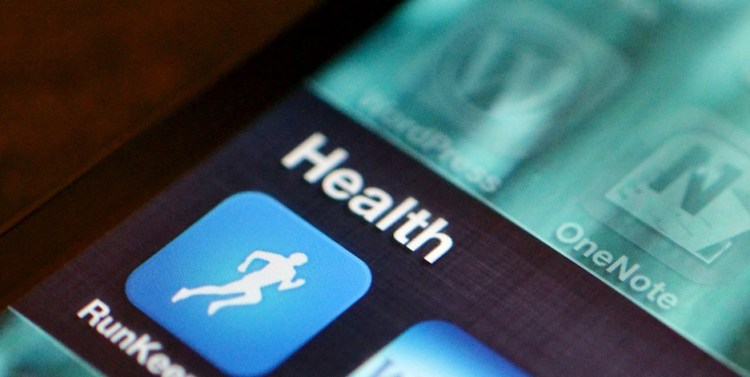Apple unveiled a sweeping plan Monday to organize all kinds of personal health data in one platform called HealthKit, but with the official launch of the thing just a few months away some big questions remain about just how the whole thing will work.
One of the keys to the success of any new personal health and fitness platform is the involvement of the healthcare community from the start. This part Apple got right.
The Mayo Clinic is Apple’s official health provider partner, contributing a host of health education content that can be used in Apple’s health platform to help users stay healthy and fit.
“The platform will give doctors a chance to say, ‘These are five most important things about colorectal cancer,'” Mayo’s marketing medical director Dr. John Wald tells VentureBeat. “Some indicators will rise to the top and others will fall.”
Apple has been working with the Mayo Clinic for at least five years on the health platform Apple debuted today. Wald says Apple moved slowly on the project, making sure that everything “made sense” along the way.
Wald says the Mayo Clinic sees HealthKit as a marketing tool. It’s hoping to reach out to millions of healthy consumers through its own health app, which will be able to pull down personal health information from the HealthKit repository. Wald says Mayo plans to use the HealthKit data as a way of developing a relationship with consumers long before they ever get sick.
Apple’s Health app and HealthKit will become available with the release of iOS 8 this coming September. And from the sound of it, there’s still a lot of work to do.
“Today there is no linkage between Apple’s HealthKit and any electronic health record (EHR),” Wald says. But, he says, by next fall personal health data will be flowing from the HealthKit repository into Mayo app, and then into the clinic’s electronic health record system.
People from the largest EHR developer, Epic, were on hand at HealthKit’s coming out at Apple’s Worldwide Developers Conference in San Francisco today. Epic develops and integrates EHR programs for large medical clinics and hospitals, making it a key player in the medical IT world. Epic has been working with Apple in some capacity on the handshake between the HealthKit repository and the Epic EHR.
Wald says that the patient record platforms (not Epic) used at Mayo can already capture health and fitness data from the Mayo app. Personal health data can also flow from HealthKit into the Mayo app and then into the EHR.
Wald says other medical groups and hospitals might use HealthKit data in the same way.
Will doctors use it?
Even if the HealthKit data could flow into the EHR, would doctors really use it? Will a physician really take the trouble to look at a year’s worth of nutrition data from my Health app, and use it to provide context around any illnesses I might have now?
Wald assures me that doctors will have good reason to buy in. “It will be like a snowball rolling downhill,” Wald says. “If it makes life easier for the physician by helping to keep patients healthy they’ll want to use it.”
“We’ll be providing doctors with a set of parameters for keeping patients healthy and fit; we’ll be showing them a way to do this that’s easier and more efficient,” Wald says.
And keeping patients healthy is the name of the game for providers these days. Wald points out that health payers are increasingly using a “value-based” model to pay health care providers. He gives the example of the cardiac surgery department at Mayo. Mayo earns more money from payers if it keeps post-op cardiac surgery patients healthy enough to stay away from the hospital for the first 30 days after surgery. If too many of these patients are readmitted within 30 days, Mayo loses money.
Apple as gatekeeper
All kinds of devices could end up connecting to HealthKit in the cloud. This will no doubt include a slew of consumer wearable devices, probably including one from Apple — eventually.
But, Wald says, it will eventually include more clinical devices. He gives as an example a small wearable heart monitor that listens to heartbeats and reports data back in real time.
But which devices can become “HealthKit Certified” and which ones won’t pass muster? Is this the role Apple wants to play in health, as it has with iTunes? The answer is that it’s yet to be determined.
Apple may have given the world a peek at just the rough outlines of the new HealthKit platform. The app will no doubt be functional and beautiful when it debuts next fall. But lots of questions still remain about the HealthKit platform, and how (and when) health care providers will actually begin to benefit from it.
Calls requesting further information were not immediately returned by Apple. Nor would Apple PR people allow CEO Tim Cook to comment on the new health products after his presentation to developers Monday.
VentureBeat's mission is to be a digital town square for technical decision-makers to gain knowledge about transformative enterprise technology and transact. Learn More

